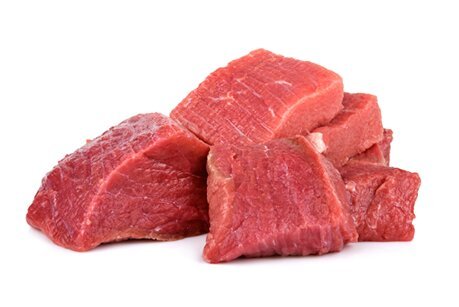Red meat (such as beef, pork, veal, and lamb) is a common dish in Western cuisines, but excessive consumption has been associated with an increased risk of cancer, heart disease, and diabetes.
Processed red meats, like hot dogs and deli meats, can further raise the risk of heart disease and certain cancers. However, when eaten in moderation, red meat is a good source of protein, vitamin B12, and iron.
Read Also: Benefits Of Eating Goat Meat
The red color in the meat comes from a protein that enhances oxygen flow to muscles via red blood cells, aiding in muscle recovery post-workout.
Red meat can also benefit people with anemia by improving muscle health and boosting iron levels.
Promotes Muscle Health
The muscle fibers in red meat provide protein, fat, and essential micronutrients that support muscle growth and repair. This is particularly beneficial for athletes who engage in intense physical activity. Protein intake helps muscles recover after exercise, strengthen, and grow. For adults at risk of malnutrition, consuming enough protein can help preserve muscle mass and aid in hormone regulation to prevent symptoms of diabetes.
Builds Strong Bones
Red meat is rich in phosphorus and magnesium, minerals that promote bone growth. As we age, muscle strength often decreases, but increasing protein intake has been shown to slow bone loss. Some studies suggest that individuals assigned female at birth who consume more meat may have a lower risk of osteoporosis, a condition that weakens bones. However, other studies recommend plant-based proteins for overall health, as they contain fewer saturated fats.
Contains Vitamins and Minerals
Beef, in particular, is an excellent source of selenium and zinc, minerals essential for immune function. Zinc helps activate immune cells in the body, and it’s particularly important for older adults to help protect against diseases. Both selenium and zinc are known to reduce inflammation, although excessive selenium intake can lead to increased inflammation. To minimize health risks, it’s advisable to eat lean red meat in moderation, with guidelines suggesting no more than 70 grams of cooked red and processed meat per day.
Helps Prevent Anemia
Anemia, characterized by a low number of red blood cells and hemoglobin, is often caused by iron deficiency, and is common in individuals on vegan or vegetarian diets. Symptoms of iron-deficiency anemia include cold extremities and dizziness. Red meat is one of the best sources of iron, helping your body absorb the necessary iron to alleviate anemia symptoms. Additionally, red meat is rich in vitamin B12, which can prevent the fatigue, headaches, and dizziness associated with B12-deficiency anemia.




